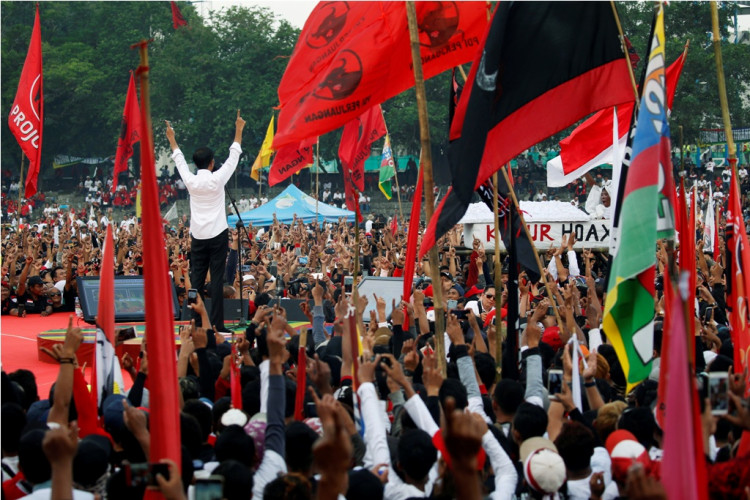Early quick counts indicated that Joko Widodo, also known overseas as "Jokowi," is leading this year's presidential elections in Indonesia. Analysts noted that if he bags a second term, the country could finally open bigger doors for foreign investments.
According to Reuters, government insiders revealed that Jokowi is looking to implement drastic reforms in the Indonesian government's policies for foreign investments if he wins for a second time.
The Indonesian market has been adamant on foreign capital over the past decades but some economists believe Jokowi's potential second term could see more opportunities for foreign investors who have long been expressing interest in the country's growing markets.
Economic adviser to outgoing Vice-President Jusuf Kalla, Mohamad Ikhsan, said Jokowi is aware of the potential negative impact of an economy that does not have a liberal but standardized approach to foreign capital.
"The president understands this very well. He also understands that it's not only capital that must be injected, foreign capital ... we need to upgrade our human resources. He promised that will be in the second term," Ikhsan revealed.
Despite increased optimism for Jokowi to win the 2019 presidential elections, other analysts do not expect a lot of changes this time. Peter Mumford of the Eurasia Group pointed out that he sees "modest economic reform" as the mass favorite will most likely encounter political, religious, and military constraints to his schemes.
Most economists agreed on one thing: that Jokowi has only this term to fix the Indonesian economy. Economy experts are eager to see how he will work to achieve the original target of seven percent in the country's economic growth. Under his leadership, growth averaged at around five percent.
The less than stellar figures have been attributed to the Jokowi administration's hesitance to attract foreign investors. Despite doubts about the Indonesian government's stance on foreign investments, Jokowi has been praised for his reforms in utility and fuel sectors.
Jokowi also said during the campaign period that he will continue to boost infrastructure projects. Since he first stepped into power in a shock victory in 2014, the Indonesian president lined up over $300 billon in infrastructure projects. His efforts gave birth to the country's first subway line construction.
Multiple outlets reported that early count results indicated Jokowi is winning over his archrival, nationalist Prabowo Subianto by a solid double-digit lead. Jokowi reportedly leads at 55 percent while Prabowo sits at the other end with 45 percent of the early votes.
Prabowo has urged poll volunteers to ensure that counting of votes do not involve fraudulent activities. He dismissed the preliminary poll results, claiming that his own counts revealed he was winning with 62 percent of the voters' support. Official results will be out in a few weeks.






